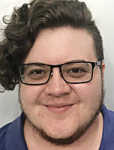
A conclusion offers a reminder, we all continue to grow, learn
The whole pretense of the ending of Minecraft is that you’re reading a conversation between two beings of the universe — they talk about having many names including ghosts, gods, demons, angels, leptons and quarks because “the words change, we do not.”
The poem starts out with “Take care. It has reached a higher level now. It can read our thoughts.”
So, this conversation is happening in real-time, and the beings know you’re reading it. They recognize the player “thinks we are part of the game.”
One of the really interesting things to me about this poem that I didn’t go into last week is that there are words missing. It includes two instances where words are just scrambled messes.
“It worked, with a million others, to sculpt a true world in a fold of the [scrambled], and created a [scrambled] for [scrambled], in the [scrambled].”
And it, not so subtly, points out those words since directly after that line is “it cannot read that thought.”
So, by reaching the end of the game, we can now suddenly hear these beings’ thoughts, but not all of them.
I think the poem is actually very obvious about what it’s doing here since it points things out like this.
They followed the comment about not being able to read those scrambled words with “No. It has not yet achieved the highest level. That, it must achieve in the long dream of life, not the short dream of a game.”
Personally, I think what the scrambled words are supposed to be doesn’t matter in interpreting the message here and I think the line I mentioned earlier of “the words change, we do not” supports that.
Throughout the conversation here, it’s obvious the beings speaking have reached “the highest level” since there are words we cannot read.
However, I think it’s easy to lose the fact that by hearing their thoughts; we have reached a higher level. If we hadn’t, then we wouldn’t have been able to read the conversation to begin with.
Now, this can certainly apply to religion — really any religion.
You’ve gone through an experience that has made you learn and grow and “reach a higher level” of understanding the universe.
However, for some people it can also apply to scientific discovery, self-discovery or education on a difficult topic.
That’s why the poem lists a vast number of things we have called these beings because they come from different life paths, experiences, beliefs and religions.
“Once we were called the spirit of the mountain. Father sun, mother moon. Ancestral spirits, animal spirits. Jinn. Ghosts. The green man. Then gods, demons. Angels. Poltergeists. Aliens, extraterrestrials. Leptons, quarks. The words change. We do not change.”
The journey of the game is now a metaphor for any of those experiences.
Religious awakenings can be compared to a slap in the face. Scientific discovery comes after years or decades of hard work. Self-discovery is an exhausting dive into who you truly are.
These aren’t pleasant things most of the time. They take hours of commitment, going places either physically or mentally you never thought you’d go and facing down threats you couldn’t have imagined.
That’s the game. It’s a more palatable version, but it’s the same steps.
You’ve gone through this journey. You’ve learned something. You’re a better person now.
The poem also makes a point, with the bit about not being at the “highest level” to say that you aren’t done.
You’ve reached a checkpoint, a place to pause and catch your breath, but there’s still more to learn and more for you to grow.
Regardless of how many times you beat the game, you get the same message because as people we’re never done.
We’re always able to continue learning and growing. There is no “highest level.”
Posting a comment requires free registration:
- If you already have an account, follow this link to login
- Otherwise, follow this link to register
